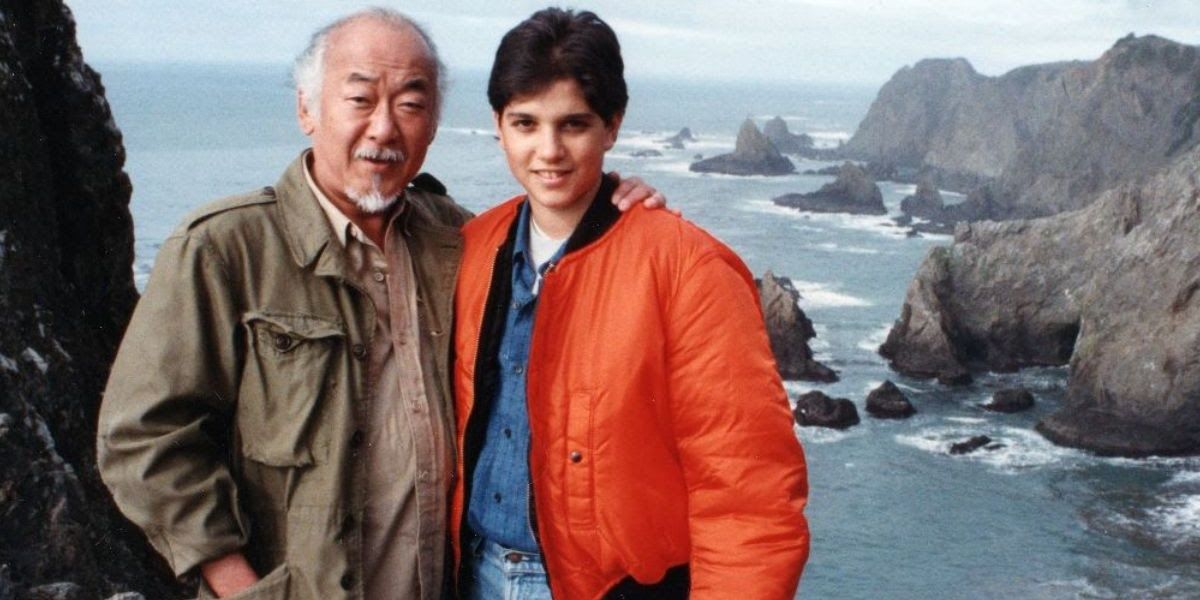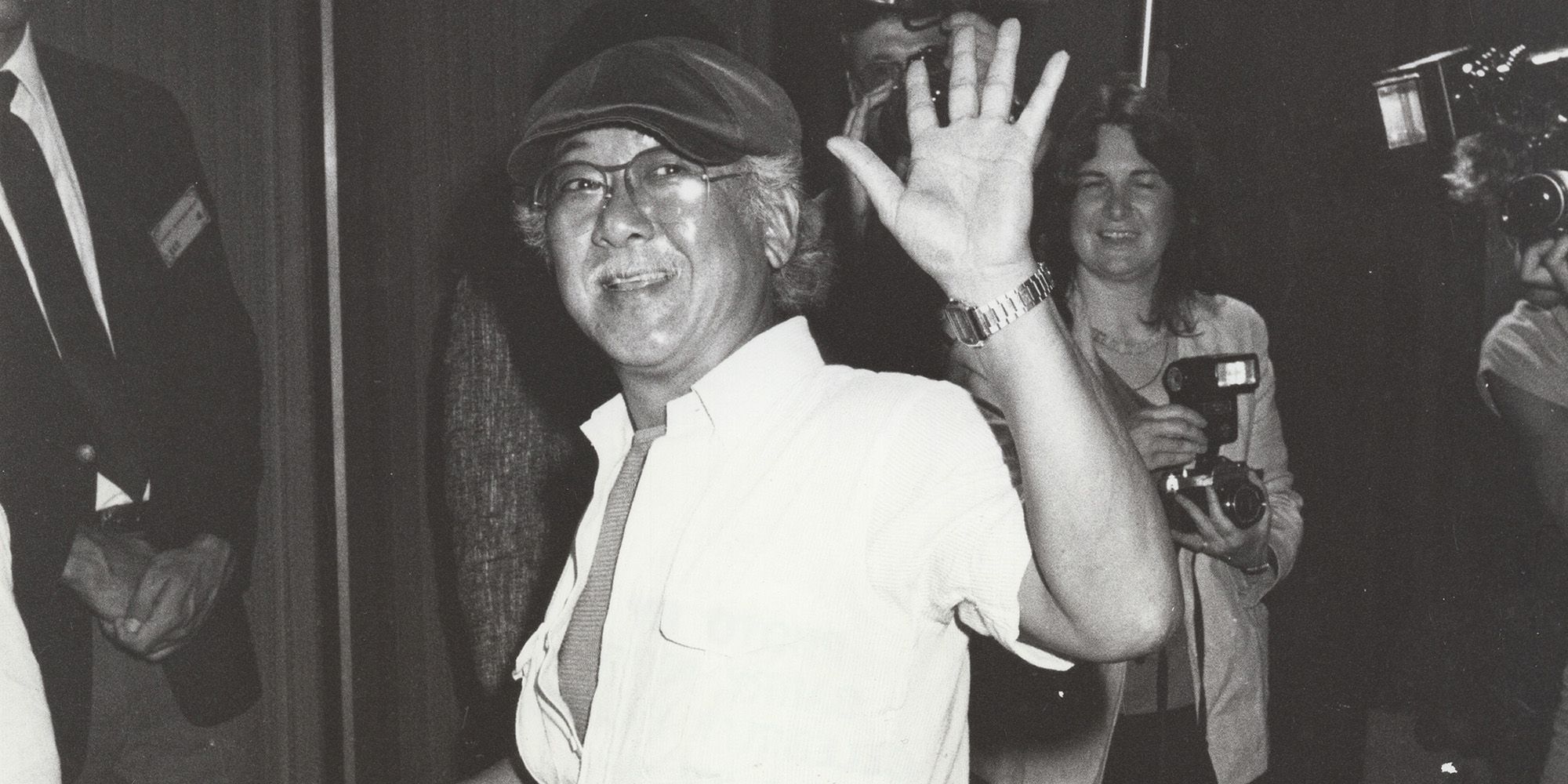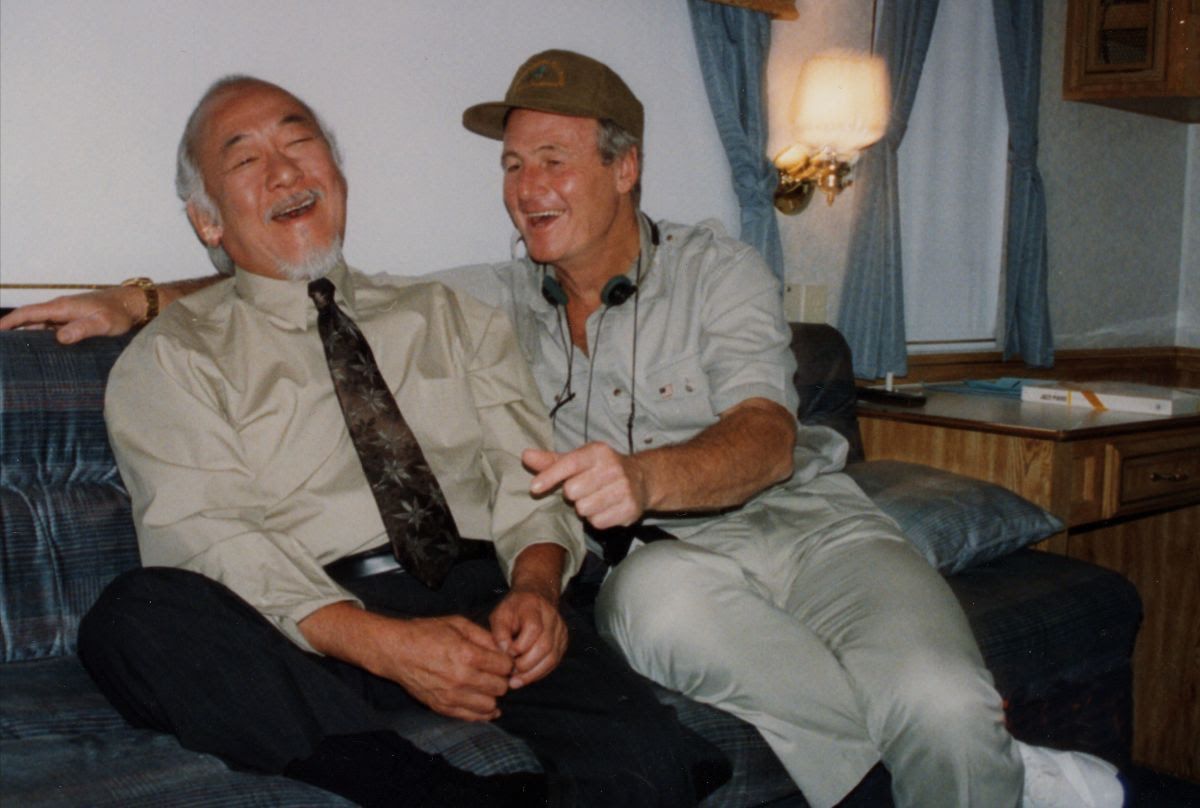The late Pat Morita, who died in 2005, never got the chance to appear on Cobra Kai, but the spirit of his Karate Kid franchise character, Mr. Miyagi, is all over the hit Netflix series. So this is the perfect time for the documentary More Than Miyagi: The Pat Morita Story, a simple and straightforward account of Morita’s life and career. The filmmaking isn’t particularly sophisticated, but director Kevin Derek has a clear love for Morita and his work, and he puts together an impressive lineup of Morita’s creative collaborators to tell the performer’s story.
And as the title indicates, there is far more to Morita’s body of work than just his appearances as Mr. Miyagi, even if that character ended up defining the latter part of his career and his eventual legacy. Derek takes a straightforward, mostly chronological approach, guided by Morita’s widow Evelyn Guerrero-Morita, who was his third wife. Guerrero-Morita’s prominence (she’s also an executive producer) inevitably privileges her perspective, and neither of Morita’s first two wives appears on-screen, even in archival footage. A closing title card notes that all three of Morita’s daughters declined to appear in the documentary.
RELATED: More Than Miyagi Documentary Memorializes The Karate Kid's Pat Morita
Even with those omissions, though, More Than Miyagi doesn’t shy away from the darker elements of Morita’s life, including his lifelong struggle with alcoholism, which eventually derailed his career and contributed to his death. Born Noriyuki Morita in 1932 in California to Japanese immigrant parents, Morita was hospitalized from ages 2-11 for spinal tuberculosis, which doctors told him might prevent him from ever walking. When experimental treatment helped correct the condition, Morita was transferred from the hospital directly to a Japanese internment camp during World War II.
More Than Miyagi mostly uses stock footage to illustrate the conditions of those camps, which lessens the impact a bit, and the vintage Morita TV interviews that Derek has to work with only delve a little bit below the surface. Derek has better resources to cover Morita’s career, starting with his early days as a stand-up comedian, and it’s a bit jarring to see the casually racist language that was used (in an ostensibly positive way) to promote Morita’s stand-up appearances. A montage of variety-show introductions features multiple insensitive jokes about Morita’s Japanese heritage, and the movie notes that he was billed as “the hip nip” in his live performances.
Derek balances the criticism of those racial stereotypes with celebrations of Morita’s boundary-breaking screen career, starting with his guest-starring roles on various sitcoms, before he landed the role of diner owner Arnold on Happy Days. Happy Days co-stars including Henry Winkler, Anson Williams, Marion Ross and Don Most remember Morita fondly, and for anyone who still knows him only from his somber Karate Kid role, it’s refreshing to see how funny and goofy he could be in his sitcom appearances.
Of course More Than Miyagi devotes the most time to Morita’s time in the Karate Kid franchise, with commentary from co-stars Ralph Macchio, William Zabka and Martin Kove, and screenwriter Robert Mark Kamen, among others. The story of how Morita, known for his comedic roles, had to audition five times for Mr. Miyagi (and still nearly didn’t get the part) is familiar to Karate Kid fans, and Derek doesn’t offer any particularly new insights about the character or Morita’s portrayal. But the affection and respect that Morita’s collaborators still have for him is heartwarming, and Derek also pays attention to how the positive portrayal of an Asian character in a Hollywood movie (including Morita’s Oscar nomination) made an impact on viewers of color.
More Than Miyagi demonstrates just how groundbreaking Morita’s career was for representation on-screen. He left Happy Days to star in the first network sitcom with an Asian-American lead, Mr. T and Tina, and after The Karate Kid he starred in the ABC crime drama Ohara. Both shows were short-lived, but they provided the rare opportunity for an Asian-American actor to be the focus of a mainstream TV series. More Than Miyagi takes a short detour to explore the history of Asian-American depictions in Hollywood, which emphasizes the importance of the boundaries that Morita broke, although there’s not nearly enough time to explore the subject fully.
Instead, Derek often focuses on home movies from Guerrero-Morita and lengthy excerpts from a fawning radio interview with her. She’s clearly dedicated to preserving Morita’s legacy, but there are parts of the movie that feel more like a personal keepsake than a professional documentary. There’s a melancholy tone to the last portion of the film, as Guerrero-Morita talks about her husband’s worsening addiction issues and his career downturn. Still, More Than Miyagi remains informative and enthusiastic, highlighting lesser-known aspects of Morita’s career (including his pride at dramatic roles in the TV movies Amos and Farewell to Manzanar) and providing a fitting tribute to his talents and his personal generosity.
Directed by Kevin Derek, More Than Miyagi: The Pat Morita Story is available Friday, Feb. 5 on VOD and DVD/Blu-ray.
KEEP READING: Cobra Kai: Ralph Macchio Discusses Continuing the Miyagi-Verse Without Pat Morita



